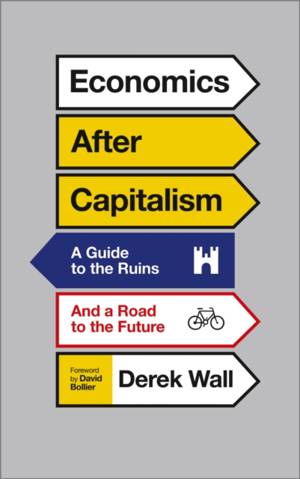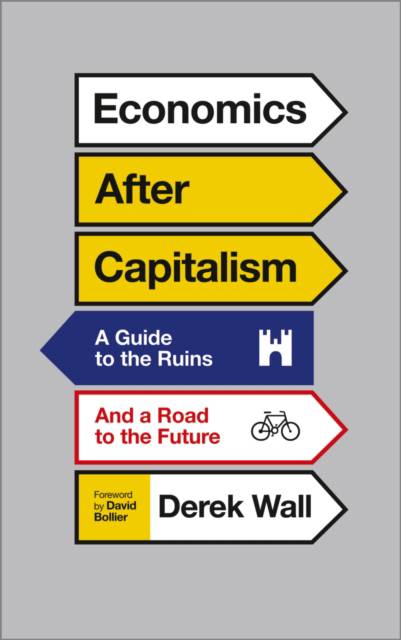
Bedankt voor het vertrouwen het afgelopen jaar! Om jou te bedanken bieden we GRATIS verzending (in België) aan op alles gedurende de hele maand januari.
- Afhalen na 1 uur in een winkel met voorraad
- In januari gratis thuislevering in België
- Ruim aanbod met 7 miljoen producten
Bedankt voor het vertrouwen het afgelopen jaar! Om jou te bedanken bieden we GRATIS verzending (in België) aan op alles gedurende de hele maand januari.
- Afhalen na 1 uur in een winkel met voorraad
- In januari gratis thuislevering in België
- Ruim aanbod met 7 miljoen producten
Zoeken
Economics After Capitalism
A Guide to the Ruins and a Road to the Future
Derek Wall
Hardcover | Engels
€ 146,45
+ 292 punten
Uitvoering
Omschrijving
From the time it was uttered by Margaret Thatcher in the 1980s, "There is no alternative" has been the unofficial mantra of the neoliberal order. The illusion of inevitability has long been a bulwark of late capitalism, leaving us unable to imagine anything beyond its crises and inequalities. But as Derek Wall argues in Economics After Capitalism, there is in fact an alternative to our crisis-ridden, austerity-inflicted world--and not just one alternative, but many.
Challenging the arguments for markets, mainstream economics, and capitalism from Adam Smith onwards, Economics After Capitalism provides a step-by-step guide to the writers, movements, and schools of thought critical of neoliberal globalization. These thinkers range from Keynesian-inspired reformists such as George Soros and Joseph Stiglitz and critics of inequality like Thomas Piketty and Amartya Sen to more radical voices such as Naomi Klein, Marxists such as David Harvey, anarchists, and autonomists including Antonio Negri and Michael Hardt.
Wall explains Marx's economic system in a twenty-first century context and outlines how we can build a democratic economy that, by drawing on the ideas of Elinor Ostrom, Hugo Chavez and others, can renew socialism. In providing a clear and accessible guide to the economics of anti-capitalism, Wall successfully demonstrates that an alternative to rampant climate change, elite rule and financial chaos is not just necessary, but possible.
Challenging the arguments for markets, mainstream economics, and capitalism from Adam Smith onwards, Economics After Capitalism provides a step-by-step guide to the writers, movements, and schools of thought critical of neoliberal globalization. These thinkers range from Keynesian-inspired reformists such as George Soros and Joseph Stiglitz and critics of inequality like Thomas Piketty and Amartya Sen to more radical voices such as Naomi Klein, Marxists such as David Harvey, anarchists, and autonomists including Antonio Negri and Michael Hardt.
Wall explains Marx's economic system in a twenty-first century context and outlines how we can build a democratic economy that, by drawing on the ideas of Elinor Ostrom, Hugo Chavez and others, can renew socialism. In providing a clear and accessible guide to the economics of anti-capitalism, Wall successfully demonstrates that an alternative to rampant climate change, elite rule and financial chaos is not just necessary, but possible.
Specificaties
Betrokkenen
- Auteur(s):
- Uitgeverij:
Inhoud
- Aantal bladzijden:
- 216
- Taal:
- Engels
Eigenschappen
- Productcode (EAN):
- 9780745335087
- Verschijningsdatum:
- 15/07/2015
- Uitvoering:
- Hardcover
- Formaat:
- Genaaid
- Afmetingen:
- 134 mm x 224 mm
- Gewicht:
- 367 g

Alleen bij Standaard Boekhandel
+ 292 punten op je klantenkaart van Standaard Boekhandel
Beoordelingen
We publiceren alleen reviews die voldoen aan de voorwaarden voor reviews. Bekijk onze voorwaarden voor reviews.









